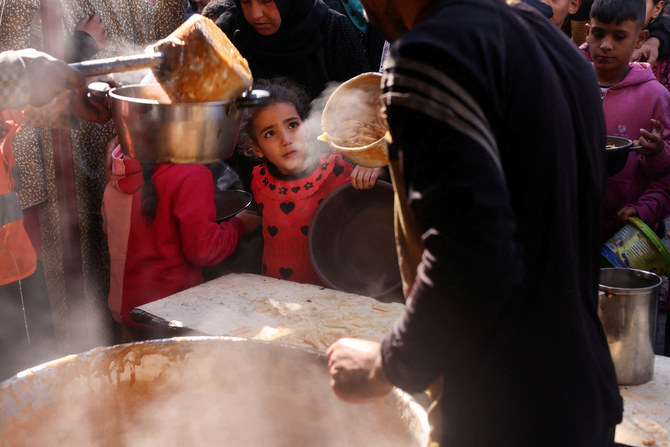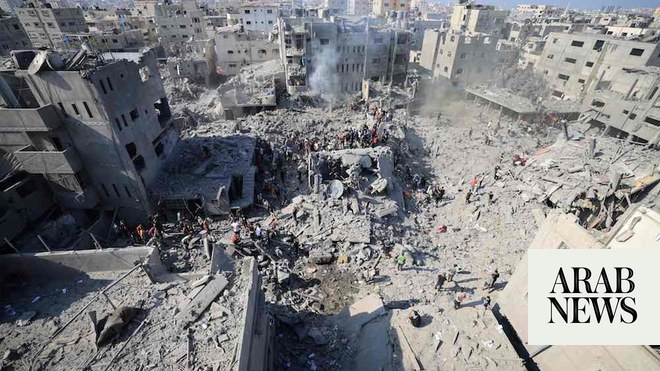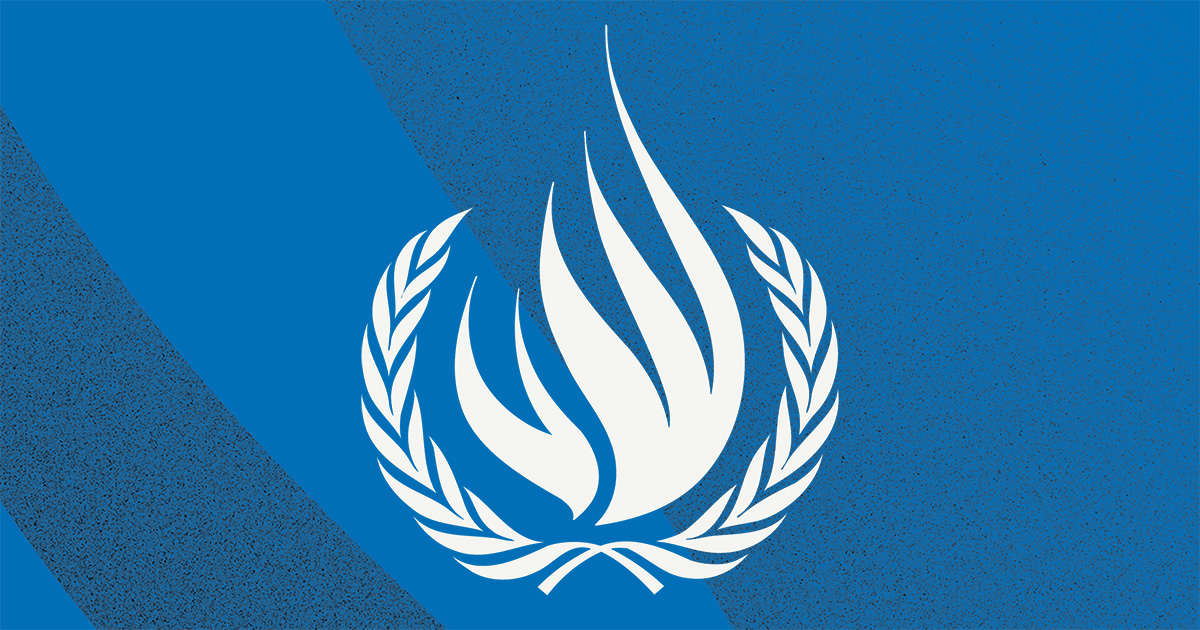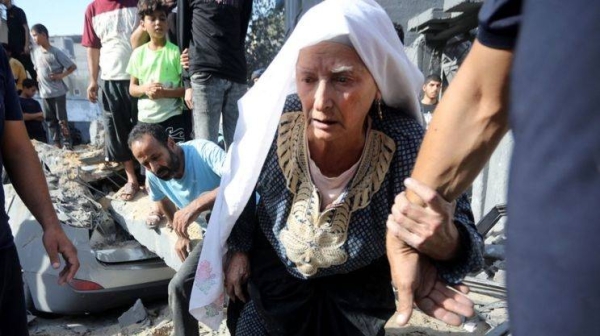
GENEVA (2 February 2024) – UN human rights experts* today expressed grave concern at the recent harmful decision by some 18 states to suspend funding to the UN Relief and Works Agency for Palestinian Refugees in the Near East (UNRWA).
Australia, Austria, Canada, Estonia, Finland, Germany, Iceland, Italy, Japan, Latvia, Lithuania, Netherlands, New Zealand, Romania, Sweden, Switzerland, the United Kingdom, and the United States have all announced suspension of funding for UNRWA, the experts said.
“These announcements come at an existential moment for over two million Palestinians in Gaza enduring catastrophic living conditions due to Israel’s large-scale military attack that the International Court of Justice (ICJ) considers a plausible genocide,” the experts said.
The decision follows Israel’s allegations against several UNRWA employees of involvement in the Hamas-led attacks on 7 October 2023.
The experts said: “In response to these allegations, and even before conducting its due process investigation, UNRWA announced its decision to terminate these employees’ contracts ‘in the interest of the agency.’ This response reflects UNRWA’s firm commitment to ensuring organisational neutrality, in line with UN principles and values rejecting incitement and all forms of violence.”
“Even if allegations against individuals are proven, based on an impartial and independent investigation, UNRWA as a whole, traditionally providing services to 1.7 million Palestinian refugees and offering employment to 13,000 locally recruited staff in Gaza, must not be blamed and punished collectively,” the experts said.
They were dismayed by reports suggesting Israel intends to “remove” UNRWA from Gaza. “We condemn in the strongest possible terms any efforts to delegitimise UNRWA as a whole.”
Founded in 1949, UNRWA is the largest UN agency in Gaza and the primary provider of life-saving services and support to millions of Palestinians in Palestine, Lebanon, Jordan and Syria, including food assistance, shelter, healthcare, education, water, sanitation and hygiene.
Approximately 1.7 million people displaced across Gaza—some multiple times, injured and highly traumatised—are currently seeking shelter in or near the vicinity of UNRWA facilities and receiving assistance from the Agency—roughly half of them children.
“We recognise UNRWA’s determination to implement its humanitarian mandate under unprecedented and enormous risks,” the experts said. “More than 150 UNRWA staff have been killed in Israeli bombardments since 7 October 2023—the highest number of UN staff killed in any conflict since the UN was founded in 1945.”
“Multiple UNRWA facilities have been targeted, besieged and demolished by the Israeli military, in apparent violation of the principle of the inviolability of UN premises,” they said.
The experts request states to rally around the Agency and urge UNRWA’s leading donors to maintain their support, especially in anticipation of the complex humanitarian challenges ahead. “We agree with the Principals of the Inter-Agency Standing Committee that no other entity has the capacity to deliver the scale and breadth of assistance that 2.2 million people in Gaza urgently need,” the experts said.
“The grossly disproportionate decision to suspend funding by some of the largest donor states defies the basic principle of humanity, and goes against states’ commitment to leave no one behind,” they said. “Denying basic human necessities, life-saving medical care, food, shelter, and antenatal care for pregnant women, is not just indefensible—it is a hindrance to the already complex journey toward peace.”
“At this existential time for over two million people in Gaza, on the brink of famine, UN operations and facilities must be protected,” the experts said, encouraging states to support UNRWA’s mandate and protect it from interference.
With the ICJ alerting the international community to the risk of genocide in Gaza and ordering immediate and effective action to ensure the provision of humanitarian assistance to civilians, states must do more, including to avoid legal consequences for aiding and abetting, or possible complicity in acts of genocide,” they said. “Instead of castigating the agency that provides critical support for millions of Palestinians in Gaza, states must exhaust all efforts to avert serious violations of international law, including genocide—and this necessitates continued international support of UNRWA’s vital humanitarian services.”
*The experts: Francesca Albanese, Special Rapporteur on the situation of human rights in the Palestinian Territory occupied since 1967; Ben Saul, Special Rapporteur on the promotion and protection of human rights and fundamental freedoms while countering terrorism; Cecilia M. Bailliet, Independent Expert on human rights and international solidarity; Michael Fakhri, Special Rapporteur on the right to food; Nicolas Levrat, Special Rapporteur on minority rights; Attiya Waris, Independent Expert on foreign debt, other international financial obligations and human rights; Livingstone Sewanyana, Independent Expert on the promotion of a democratic and equitable international order; Tlaleng Mofokeng, Special Rapporteur on the right of everyone to the enjoyment of the highest attainable standard of physical and mental health; Mr. Tomoya Obokata, Special Rapporteur on contemporary forms of slavery, including its causes and consequences; Reem Alsalem, Special Rapporteur on violence against women and girls, its causes and consequences; Ms. Alexandra Xanthaki, Special Rapporteur in the field of cultural rights; Ms. Paula Gaviria Betancur, Special Rapporteur on the human rights of internally displaced persons; Ms Ashwini K.P. Special Rapporteur on contemporary forms of racism, racial discrimination, xenophobia and related intolerance; Barbara G. Reynolds (Chair), Dominique Day, Bina D’Costa, Working Group of Experts on People of African Descent; Olivier De Schutter, Special Rapporteur on extreme poverty and human rights; Dorothy Estrada Tanck (Chair), Claudia Flores, Ivana Krstić, Haina Lu, and Laura Nyirinkindi (Vice-Chair), Working group on discrimination against women and girls; Working group on discrimination against women and girls; Pedro Arrojo-Agudo Special Rapporteur on the human rights to safe drinking water and sanitation; Carlos Salazar Couto (Chair-Rapporteur), Sorcha MacLeod, Jovana Jezdimirovic Ranito, Chris M. A. Kwaja, Ravindran Daniel, Working Group on the use of mercenaries; Siobhán Mullally, Special Rapporteur on trafficking in persons, especially women and children; Mr. Balakrishnan Rajagopal, Special Rapporteur on the right to adequate housing; Farida Shaheed, Special Rapporteur on the right to education; Clément Nyaletsossi Voule Special Rapporteur on the Rights to Freedom of Peaceful Assembly and of Association.
The Special Rapporteurs are part of what is known as the Special Procedures of the Human Rights Council. Special Procedures, the largest body of independent experts in the UN Human Rights system, is the general name of the Council’s independent fact-finding and monitoring mechanisms that address either specific country situations or thematic issues in all parts of the world. Special Procedures experts work on a voluntary basis; they are not UN staff and do not receive a salary for their work. They are independent of any government or organisation and serve in their individual capacity.
For additional information and media requests please contact: Nuriya Jeppsson Campana (nuriya.jeppssoncampana@un.org)
For media enquiries regarding other UN independent experts, please contact Maya Derouaz (maya.derouaz@un.org) and Dharisha Indraguptha (dharisha.indraguptha@un.org).
Follow news related to the UN"s independent human rights experts on Twitter: @UN_SPExperts
Situation in the Occupied Palestinian Territory and Israel
See all Media coverage of the situation









